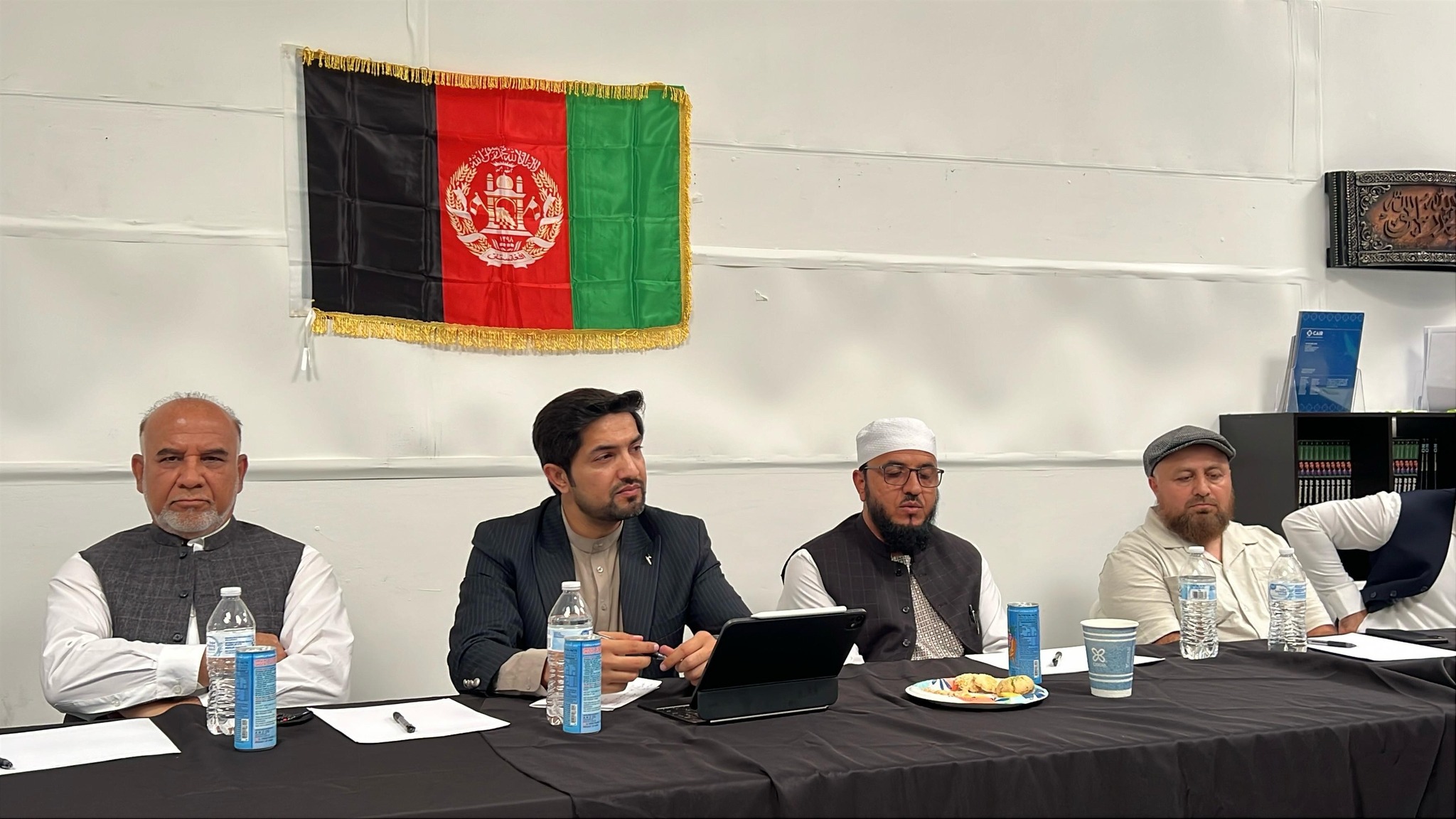The First National Dialogue/Meli Maraka Session Was Held in Sacramento, California

Following the meetings in London, Berlin, Birmingham, and Cologne, the National Dialogue/Meli Maraka session was this time held in Sacramento, California. A large number of the country's academic, political, religious, social, and cultural figures were in attendance.
The session began with a recitation of the Quran by Qari Ehsanullah Shahid. After the national anthem was played, a prominent scholar of the Afghan community in Sacramento, Imam Taheri, delivered a guiding and scholarly speech in light of Islamic teachings. Then, the distinguished writer and academic figure, Mr. Waliullah Malikzai, welcomed the participants and thanked everyone who had a part in preparing the meeting. Following the opening remarks, Mr. Ahmad Irshad Ahrar spoke about the goals, principles, and structure of Meli Maraka. He reminded the audience that despite its half-century-long history, the crisis in Afghanistan has not yet been seriously examined to identify its root causes and take practical steps to resolve it. Therefore, he added, it is necessary for Afghans to begin intra-Afghan dialogues.
The Instrumental Use of Ethnic Issues Is a Major Obstacle to National Unity
In the second part of the session, participants discussed the fundamental challenges, priorities, and solutions for national unity, peace, and progress in Afghanistan. They emphasized that national unity is an essential prerequisite for peace and political stability in the country, and that one of the main causes of disunity is the instrumental use of ethnic issues by certain groups and individuals. The participants called on the people of Afghanistan to no longer allow anyone to exploit ethnicity to create national disunity.
In this regard, Dr. Mohammad Shoaib Yusufzai spoke about the factors of hatred and division, emphasizing the spiritual aspects of disunity. He entrusted the clergy with the responsibility of fighting the spiritual dimensions of disunity and division through the propagation and promotion of Islamic teachings. He added that in recent years, due to political and ethnic disunity, tribalism has become institutionalized in Afghan politics, and the absence of national leaders has turned society into a soulless body.
Following this, Mr. Yassini, the head of the Afghan Cultural Jirga in California, recalled the role and sacrifices of different ethnic groups in the country's historic and fateful processes. He said that the current ethnic mindset has been created by enemies among us and that they continue to strengthen it to this day. He considered public education and awareness to be the only way to combat this phenomenon.
During the session, participants emphasized that only Afghans themselves, not foreigners, can solve Afghanistan's problems. One of the participants, Mr. Jamal Nasser Farahmand, said that a meeting has never been held in Afghanistan to listen to the people's heartfelt words, which is why pent-up resentments have accumulated so much that people no longer even respect each other and say whatever comes to their minds. He reminded the audience that people can endure poverty, but they will not tolerate insults to their identity, language, and personality.
At the end of the session, participants called for the continuation of such meetings. After appointing a person in charge and a chairman for the next meeting, the program concluded with a prayer.